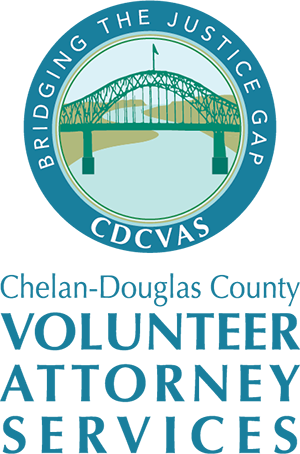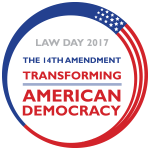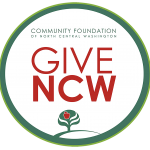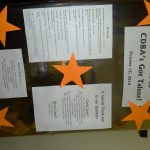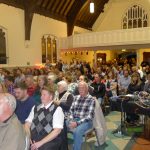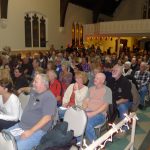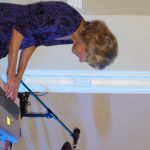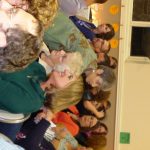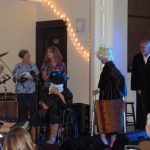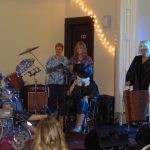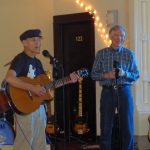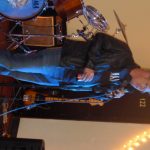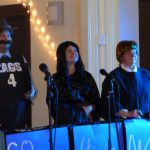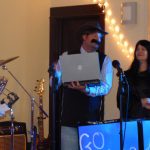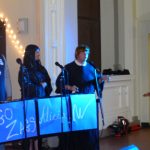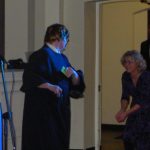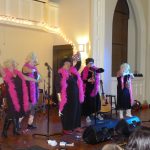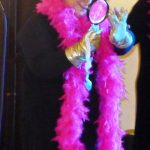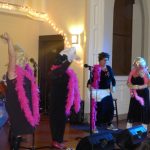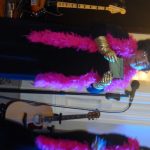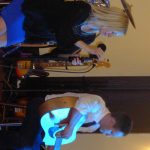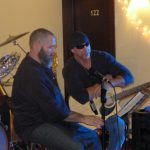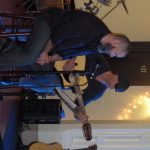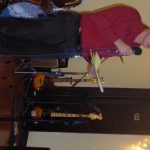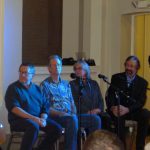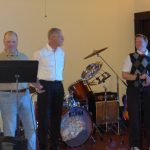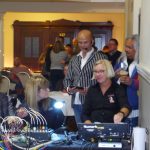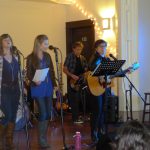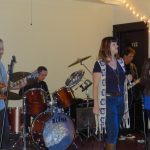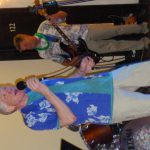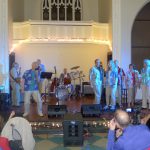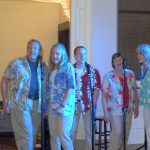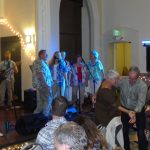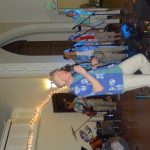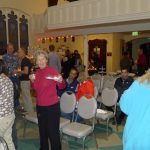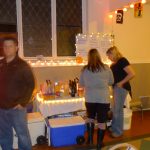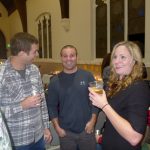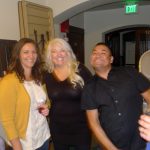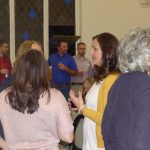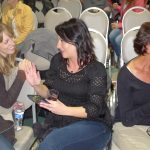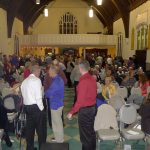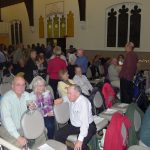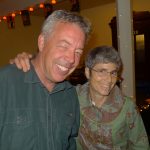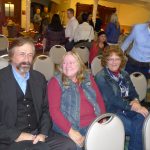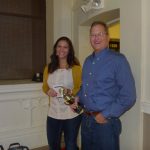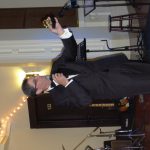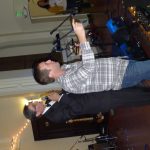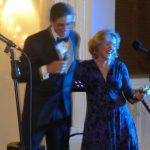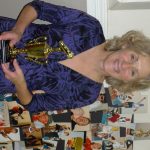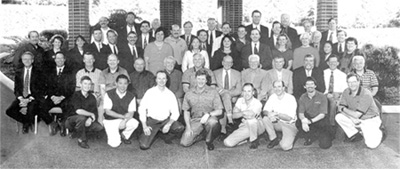Russell J. Speidel
Goldmark Award Luncheon February 28, 2003
I would like to thank the Legal Foundation of Washington for recognizing the lawyers of the Chelan Douglas County Bar Association. We are honored to receive the Charles Goldmark Award.
To members of the Bench and Bar, to my family, friends and distinguished guests I bring you the good news of our mission.
Good news that even though we are in a struggle for the freedom of our fellow men and women, together we can prevail. Good news that this struggle calls us to make personal sacrifice to help those less fortunate achieve the level of access to justice that we already enjoy. Good news that we are expected to give of our time, talent and treasure. And good news that now is the time to lay down the burdens of race and the barriers of language and culture, and make America one America.
Two thousand seven hundred years ago a man named Isaiah had this to say about our mission.
[You have been anointed. You have been] sent to bring good news to the oppressed, to bind up the broken hearted, to proclaim liberty to the captives, and release to the prisoners; to comfort all who mourn; to give them a garland instead of ashes, the oil of gladness instead of mourning, the mantle of praise instead of a faint spirit.
And two thousand years ago Paul of Tarshis exhorted a young church in Thessalonia to “hold fast to what is good”.
Today each of us is engaged in this mission. The encounters to share, if we had the time, would be truly remarkable. And surely one result of such an exercise today would be the presence of many of you up here with our local Bar Association to jointly receive this award.
I bring to you a case study of several of these encounters. The first case is that of a woman named Julie, who is 58 years old. We met her at our Bar Association’s pro bono advice only clinic. She was one of several afternoon appointments that day.
Julie’s son, who is 30 years old, had been arrested on felony drug charges. This was not his first arrest. Julie posted bail of $10,000 through a bail bond. In her application for the bond she represented correctly that she owned her home, which she had inherited free, and clear when her husband died after a 20-year marriage.
Julie’s son did show up in court for the hearing. There was a plea bargain and he was sentenced to serve time. The clerk’s minutes from the hearing state the bail was revoked. The court ordered the defendant, Julie’s son, to report to jail by 11:30 a.m. Julie’s son failed to appear and an escape charge was brought against him. Eventually they did catch him and he did go to prison.
The bail bond company and its collection agent then came after Julie. Here is Julie’s story told to us.
“I told them (the collection agency) that was not right (for them to go after her). Several times I explained to them the clerk’s minutes. They were harassing me on it, calling me all the time day and night. Several times I explained to them that I didn’t owe them. They’d say, “Yes you do and you will pay.” I’d say, “I have better things to do.” They’d say, “Well we don’t. We’ll be back. We’ll be calling.”
Julie’s house has an assessed value of approximately $100,000. The collection agency’s calls and letters to her claimed that she owed, not the $10,000 bond, but $100,000. Again, here’s Julie:
“My gosh, that’s a horrible number for me. I couldn’t possibly do that. They set a date for me to pay the $100,000 and they said they will take my house. “Where will I live?” I asked. “What am I supposed to do if you take my house? It’s all I have.” It didn’t make any difference to them; I signed the bail bond application; and I owed it.”
We met with Julie at two consecutive Thursday afternoon clinics. The first week we called the collection agency and asked them to send us a copy of the documents Julie had signed. The employee of the agency with whom we spoke was adamant that the money was owed. We also reviewed the clerk’s minutes from the court file and talked with the Public Defender who represented Julie’s son in the criminal case.
The second week we were surprised to see the creditor had sent none of the papers he had promised. The creditor refused to take our calls this time, but we were informed their collection case was being dropped.
Here’s what Julie had to say to us in her report:
“With the calls and letters saying they were going to put it (the $100,000 claim) against my house I just about went into a nervous breakdown over this. That’s a very uncomfortable feeling. Right at that time I was sick and didn’t even have a job. It’s a bad feeling.
“I was sure happy to see you and talk to you ’cause they left me alone after that. I never heard anything further. Apparently whatever you said on the phone to them really worked. I just want everything to go away and leave me alone.
“I’m so glad you guys were there. I think I just got lucky that you were there. That’s why I went there (to the pro bono clinic). I needed to know what to do.”
My friends, the point of Julie’s story is that any one of the lawyers in this room today could have solved Julie’s problem. Many of these cases simply take good listening and problem solving skills. Too often we think of pro bono services as the traditional, litigation-oriented, legal aid. However, the current issue of the American Bar Association magazine, Business Law Today, confirms that for decades the bar has, for example, encouraged business lawyers to use their business law skills in public service.
We are all striving toward that common goal that Congresswoman Barbara Jordan described this way, “What the people want is very simple. They want an America as good as its promise.”
Closer to home for many of you from Seattle is my second example, a case which is in the U.S. District Court for the Western District of Washington, involving the deportation of Somali immigrants. Since 1991 famine and civil war have left Somalia without a functioning government. As the court noted in a recent decision, a “state of general chaos persists (in Somalia).”
In the Seattle case, like others around the country, the federal government seeks to deport without judicial review many Somalis for immigration violations, generally, for misdemeanors. However, deportation to Somalia according to Attorney Tom Boeder, the head of the Somalis’ legal team at Perkins Coie, “literally means the difference between life and death for our clients.”
The success of the Perkins Coie pro bono legal defense team is on both a local and national scale. Through their efforts a permanent injunction was issued last month to stop the deportation of the five original Perkins Coie clients. In addition, the Perkins Coie team expanded their case into a national class action suit. Last month the U.S. District Court certified that all Somalis in the United States who are subject to deportation represent a legitimate class of people to be protected by the injunction. That class certification combined with the injunction blocks the deportation of an estimated 2,700 Somalis nationwide.
It is important for us to celebrate and recognize the pro bono efforts of the lawyers at Perkins Coie for what they have done in this case, and just as important, what each of you does in your own law practice and support work to contribute to our mission.
Helen Keller paid her compliments to you when she wrote, “I look upon true patriotism as the brotherhood of man and the service of all to all.”
My last example involves one of our pro bono clients in Douglas County who was referred to our Volunteer Attorney Services Program by Chelan County Superior Court Judge John Bridges. Judge Bridges was concerned that the husband, Richard, who was proceeding pro se, needed representation in a case where his wife, Nancy, was represented by counsel. Our pro bono program accepted this case and obtained a lawyer to represent Richard. The only issue in this case was what visitation would be provided for Richard with the couple’s child, an active and healthy 11-year-old boy. Richard has Multiple Sclerosis. He has had this condition in a progressive state for over ten years. At age 43 he is confined to a wheelchair, must use a catheter, and lives in an adult family home. His only source of income is from Social Security Disability, which totals $843 per month. Just about all of that money goes to pay his room and board.
After the pro se hearing which prompted the referral by Judge Bridges, Nancy’s attorney proposed a temporary parenting plan, which provided in part as follows:
“The father’s involvement or conduct may have an adverse effect on the child’s best interests because of a physical impairment which interferes with the performance of parenting functions. Father, Richard, suffers from Multiple Sclerosis. He is confined to a wheelchair and has difficulty with many life functions and suffers from diminished mental reasoning. He has tremors on a regular basis; he needs help with all areas of life and therefore is living in an assisted care facility. There is really no adequate space in that facility for (the child) to live and stay overnight.”
Nancy’s attorney proposed in the temporary orders that Richard be allowed visitation three hours every Wednesday evening and three hours every Sunday afternoon with Nancy to have custody and care of the child at all other times.
We should note that the standard visitation for the non custodial parent in Douglas County would be every other weekend from Friday at 8:00 p.m. to Sunday at 6:00 p.m. (representing two overnights) and every Wednesday after school until 8:00 or 9:00 p.m. (approximately five or six hours). You can see the extent to which Richard as a pro se litigant was being short changed.
Upon our meeting with Richard it was clear that while he has some difficulty speaking he is highly intelligent and suffers from absolutely no diminished mental reasoning. It was also evident from a visit to his home that there was adequate space for the child to live and stay overnight.
When our pro bono attorney got involved we were able to follow the advice of our Washington State Bar Association President, Dick Manning, as stated in the February, 2003, Bar News, and pursue collaborative lawerying. In Richard’s case we held a joint mediation meeting in his living room. Nancy and her counsel were present with Richard and his pro bono counsel.
At first Richard was very hostile toward Nancy during this meeting but his pro bono attorney was able to restrain Richard’s language and calm him down. Here is what Richard had to say to us in his report:
“When I started to get out of hand (in the living room conference) you grabbed my arm. I was thinking I was lucky he was here. I was starting to say things that shouldn’t have been said. You didn’t have just your client in mind but Patrick in your mind too. You’ve had what’s good for Patrick in your mind from the start.”
The two parties and their two lawyers solved the visitation issue. Richard now has overnight visitation with Patrick as much as Richard and Patrick want. Currently that is every other Friday night, plus the same Wednesday evenings as before. The boy, Patrick, is happy to be spending more time with his father. Both Richard and Nancy are pleased with the process we followed. And Richard appreciates the fact that his pro bono lawyer was there when he needed one.
What the pro bono program of the Chelan Douglas County Bar Association accomplished in Richard’s case reminds us of what Simone de Beauvoir described when she said, “The only public good is that which assures the private good of its citizens.”
When told we were receiving the Goldmark Award Richard responded, “Who voted?” and then he added, “That’s a pretty good award.”
Struggle; sacrifice; time, talent and treasure; make America one America.
Similar to Isaiah and Paul before us, we are engaged in this mission:
To bring good news to the oppressed, to bind up the broken hearted, to proclaim liberty to the captives, to comfort all who mourn; [and to] hold fast to what is good.
Thank you.
